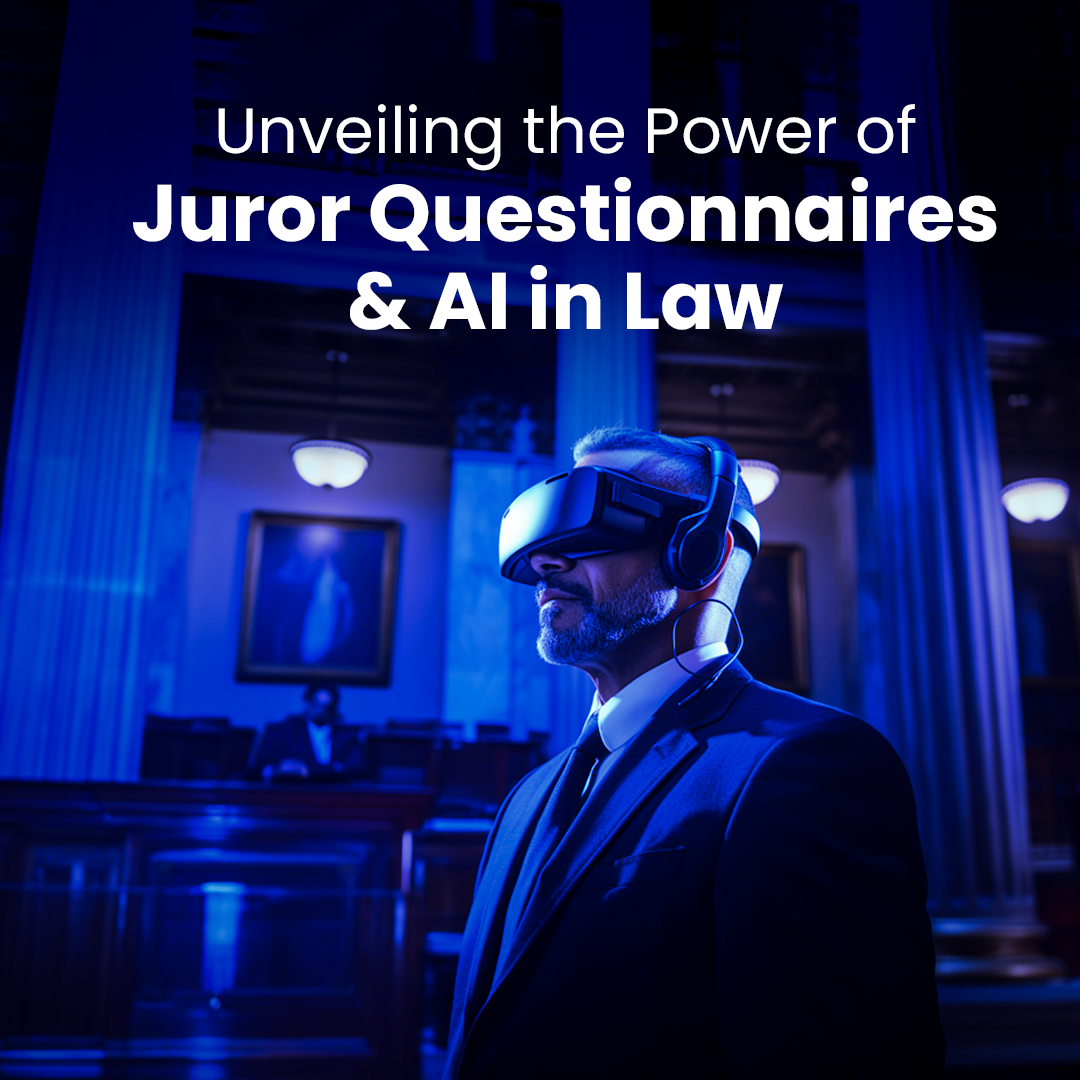Artificial Intelligence (AI) is no longer a figment of sci-fi novels but a tangible reality impacting numerous sectors, including law. In the latest episode of our podcast, we unravel the power of Supplemental Juror Questionnaires (SJQs), shedding light on their potential to increase juror disclosure and combat common courtroom issues, and AI in jury selection and how it can be used to analyze data, predict juror behavior, and provide valuable insights before trial.
The courtroom is a nuanced environment, often impacted by various psychological factors. Social desirability, for instance, plays a significant role in the jury selection process, influencing the disclosure of personal experiences and attitudes. Stereotyping based on demographics is another common pitfall. To combat these challenges, SJQs can be a potent tool, allowing more precise and predictive questioning while also identifying potential biases jurors may possess. Tailoring SJQs to each specific case is important, as well as the collaboration with opposing counsel and obtaining court approval.
Rachel Lanier, Managing Attorney at The Lanier Law Firm, makes some very astute observations as to why SJQs are so effective, starting off with why lawyers are often a little hesitant at first, not wanting to ask too many questions for fear they’ll be perceived as naggy or perhaps jurors may think it’s some form of trickery. Lanier explains very simply and matter-of-factly, “Jurors are the deciders. They decide the facts.” She continues, “One of the most important things you could do is figure out how they make decisions, including what kind of decisions they make in their everyday lives. SJQs help us get that information, and on top of that, they help uncover bias, namely confirmation bias. There’s always this cross-over between the facts and evidence and our beliefs. Rachel mentions the importance of getting to know your jury and not shying away from that, and boldly states, “Voir Dire/jury selection is the only chance you’ll have to get to know the deciders in your case! So all the data you can get is fantastic. The more, the better.”
AI is transforming the world and the legal profession. It can convert paper SJQs into digital formats, extract valuable insights and even initiate conversations for cause challenges, and help create visuals and demonstratives at trial, proving that technology’s integration into law is both expansive and inevitable.
It’s a broad term, but AI also offers the opportunity to open a treasure trove of insights for jury selection. By leveraging data technology, it’s possible to create a predictive model ranking potential jurors based on demographics, psychographics, and other traits. This data-driven approach can streamline the jury selection process, inform preemptive strikes, perform real-time transcription, and aid in constructing impactful visuals for trials.
However, like any powerful tool, AI must be used responsibly. While data-centric AI can profile jurors and decipher sentiment and communication patterns in real-time transcripts, it’s essential to exercise caution to avoid biased outcomes. It’s essential to use human oversight to ensure accuracy and ethical use.
Both of these tools are emerging as game-changers in trial law. From surprising predictors that emerge from juror questionnaires to data-driven jury selection to the importance of responsible technology use in the courtroom, our podcast episode emphasizes the transformative potential of AI and SJQs in pretrial research and trial preparation. We also share how we harness the power of these tools and how, as a whole, we inch closer to a more efficient and fair legal system that will revolutionize the practice of law as we know it.

